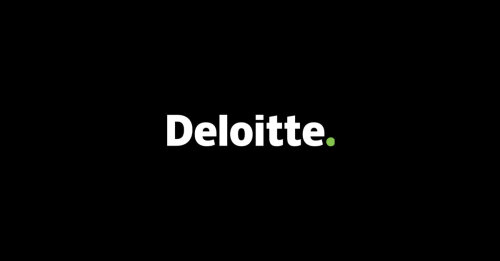Best Data Center & Digital Infrastructure Lawyers in Norway
Share your needs with us, get contacted by law firms.
Free. Takes 2 min.
Or refine your search by selecting a city:
List of the best lawyers in Norway
About Data Center & Digital Infrastructure Law in Norway
Norway has established itself as a key player in the European data center and digital infrastructure landscape. The country’s cool climate, access to renewable energy, and robust digital connectivity make it an attractive location for data centers, cloud services, and related IT infrastructure projects. As a result, legal frameworks have emerged to govern issues such as data privacy, construction permits, energy usage, and cross-border data flows. Navigating these laws is essential for businesses operating in, or seeking to enter, the Norwegian digital infrastructure sector.
Why You May Need a Lawyer
Individuals and companies may need legal assistance with data center and digital infrastructure matters in Norway for several reasons. Common scenarios include negotiating contracts for colocation or cloud services, ensuring compliance with data privacy laws (including the General Data Protection Regulation, GDPR), securing the necessary construction and environmental permits for building data centers, dealing with employment issues in tech operations, or navigating energy procurement agreements. Cross-border data transfer, intellectual property, and dispute resolution are also areas where legal professionals provide critical guidance.
Local Laws Overview
Several Norwegian and European laws impact the planning, operation, and security of data centers and digital infrastructure:
- GDPR compliance is mandatory for all entities handling personal data, with strict consent and security requirements.
- The Norwegian Personal Data Act supplements and enforces GDPR provisions locally.
- The Planning and Building Act regulates land use, zoning, and construction permits for data center facilities.
- Licenses for energy usage and contracts for grid access may be required due to the high energy needs of data centers.
- Environmental laws emphasize energy efficiency and the use of renewable resources, reflecting Norway’s climate policies.
- There are operational standards and cybersecurity requirements, including obligations under the Security Act and EU’s NIS Directive (Network and Information Security Directive).
- Export control regulations govern the cross-border flow of data and related hardware.
Frequently Asked Questions
What permits are required to build a data center in Norway?
You need building permits from local authorities, adherence to zoning regulations, environmental impact assessments, and possibly energy usage approvals, depending on facility size and location.
Is GDPR compliance mandatory for data centers in Norway?
Yes, GDPR and the Norwegian Personal Data Act apply to all entities processing personal data, including data centers and digital infrastructure providers.
How is energy supply for data centers regulated?
Data centers must enter into agreements with energy providers and may need regulatory approval for high-capacity connections. Norway’s focus on renewable energy often influences these requirements.
Are there restrictions on foreign ownership of data centers?
There are generally no outright restrictions, but foreign investors must comply with security, data sovereignty, and notification requirements outlined in Norwegian regulations.
How are cross-border data transfers handled?
Cross-border transfers must comply with GDPR, meaning adequate protection measures must be in place when sending personal data outside the European Economic Area.
What are the main environmental requirements for data centers?
Environmental regulations focus on minimizing energy usage, utilizing renewable sources, efficient cooling, and, in some cases, repurposing waste heat from data center operations.
What are the cybersecurity obligations for operators?
Operators must ensure strong data security, regular risk assessments, and report certain incidents to authorities in line with the Security Act and the NIS Directive.
Can data centers provide cloud services to government clients?
Yes, but they must meet specific procurement, security, and data sovereignty requirements, which may be more stringent than for private sector clients.
What should I do if there is a data breach at my data center?
You must notify the Norwegian Data Protection Authority without undue delay and comply with GDPR reporting obligations, including notifying affected individuals in certain cases.
Are there incentives for establishing data centers in Norway?
In some cases, local governments offer incentives such as favorable energy rates or expedited permitting processes for data centers that align with environmental and digital strategies.
Additional Resources
Several agencies and organizations can assist with legal and regulatory matters in Norwegian data center and digital infrastructure law:
- Norwegian Data Protection Authority (Datatilsynet) - for privacy and data protection guidance
- Norwegian Directorate for Civil Protection (DSB) - for security and risk management regulations
- Norwegian Communications Authority (Nkom) - for electronic communications and infrastructure laws
- Ministry of Local Government and Modernisation - for planning, building, and digitalization policy
- Local municipalities - for permits and zoning information
- Industry associations such as the Norwegian Data Center Industry
Next Steps
If you need legal advice or assistance related to data centers or digital infrastructure in Norway, consider taking the following steps:
- Clearly identify your needs, such as contract negotiation, compliance, or permit applications.
- Gather all relevant documents, including existing contracts, project plans, or correspondence with authorities.
- Contact a Norwegian law firm or legal practitioner experienced in data center, IT, or regulatory law.
- Prepare questions and outline your objectives for the legal consultation.
- Stay informed about regulatory changes, as digital infrastructure laws are continually evolving.
Seeking qualified legal guidance early can help avoid costly mistakes, ensure compliance, and make the most of Norway’s opportunities in the fast-growing digital infrastructure sector.
Lawzana helps you find the best lawyers and law firms in Norway through a curated and pre-screened list of qualified legal professionals. Our platform offers rankings and detailed profiles of attorneys and law firms, allowing you to compare based on practice areas, including Data Center & Digital Infrastructure, experience, and client feedback.
Each profile includes a description of the firm's areas of practice, client reviews, team members and partners, year of establishment, spoken languages, office locations, contact information, social media presence, and any published articles or resources. Most firms on our platform speak English and are experienced in both local and international legal matters.
Get a quote from top-rated law firms in Norway — quickly, securely, and without unnecessary hassle.
Disclaimer:
The information provided on this page is for general informational purposes only and does not constitute legal advice. While we strive to ensure the accuracy and relevance of the content, legal information may change over time, and interpretations of the law can vary. You should always consult with a qualified legal professional for advice specific to your situation.
We disclaim all liability for actions taken or not taken based on the content of this page. If you believe any information is incorrect or outdated, please contact us, and we will review and update it where appropriate.
Browse data center & digital infrastructure law firms by city in Norway
Refine your search by selecting a city.









